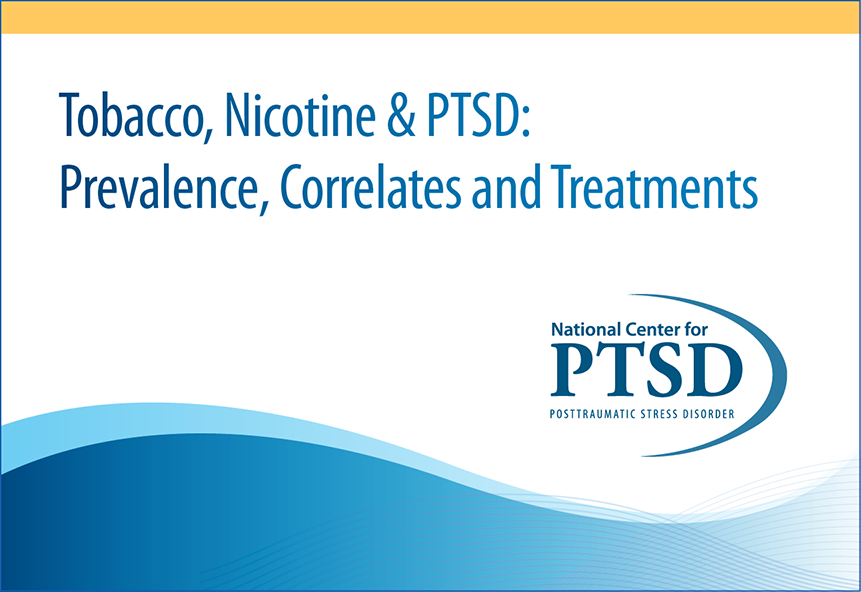PTSD: National Center for PTSD
Tobacco, Nicotine, and PTSD: Prevalence, Correlates, and Treatment
Continuing Education
This section brings together free in-depth Continuing Education resources for the Professional community concerned with trauma.
Tobacco, Nicotine, and PTSD: Prevalence, Correlates, and Treatment
- Date Created: 12/31/2024
- Time to Complete: 1 hour
- Credits: ANCC, APA, ASWB, ACCME, NBCC, Other Orgs
- Skill Level: Intermediate
- Course Series: PTSD 101, PTSD Consultation Lecture Series
 Author(s):
Author(s):
Description
Tobacco use, and cigarette smoking in particular, is the leading cause of preventable death in the United States. There have been significant declines in cigarette use in the general and Veteran populations, however the prevalence of tobacco use remains relatively high, especially among Veterans with PTSD. Evidence indicates that tobacco use exacerbates symptoms of PTSD and smoking cessation reduces symptoms of depression and anxiety. However, PTSD providers may not feel they have adequate skills to provide behavioral counseling to assist with cessation.
After reviewing the relationship between PTSD and nicotine dependence, this online course provides the basic tenets of behavioral counseling for treating tobacco dependence. The author discusses the role of the clinician across different states of behavior change.
Goals and Objectives
- Understand the relationship between PTSD and nicotine dependence
- Define and become familiar with the key elements of brief behavioral counseling
- Discuss and gain an understanding of the role of the clinician across different stages of readiness for behavior change


























